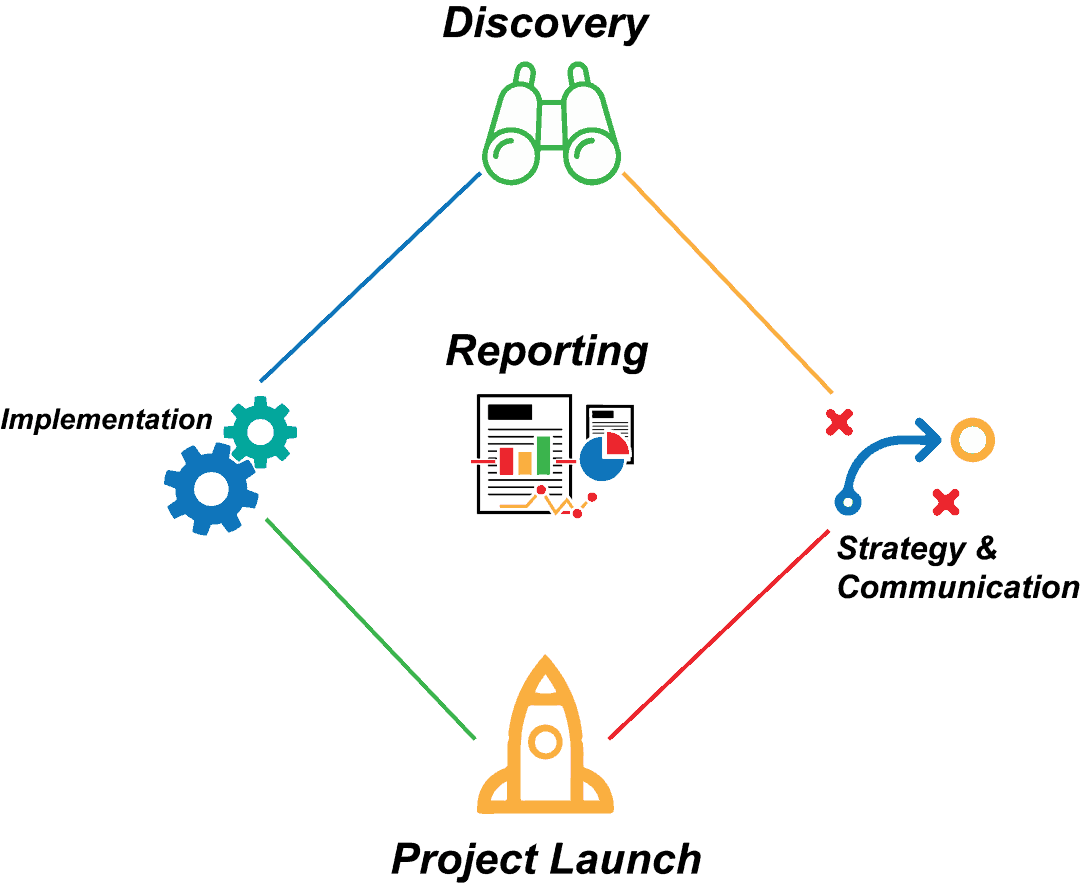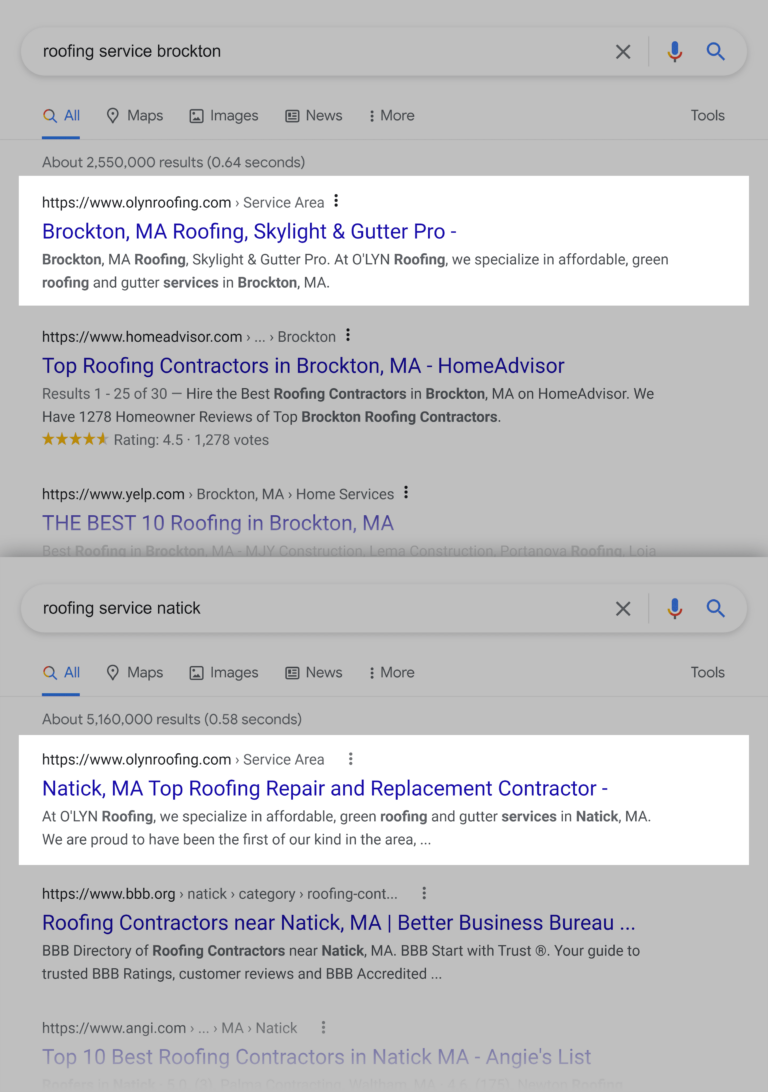Local SEO Results: What To Expect From Your Agency
Effective location-based SEO (local SEO) can have a substantial impact on the success of your digital marketing comparable to any other core marketing.
For a business that has a physical location, or many business facilities to optimize, the value of dominating your local space online cannot be underestimated.
The same can be said for companies that operate and provide services within specific geographic areas that are critical to the company’s revenue and related parameters of success.
There are many misconceptions about local SEO; for example, local SEO is only for small businesses, or that local SEO restricts full online visibility.
It’s important when looking to outsource your local SEO that you make sure that your expectations of an agency and the results you receive match your local SEO aspirations.
SEO Agency Fundamentals
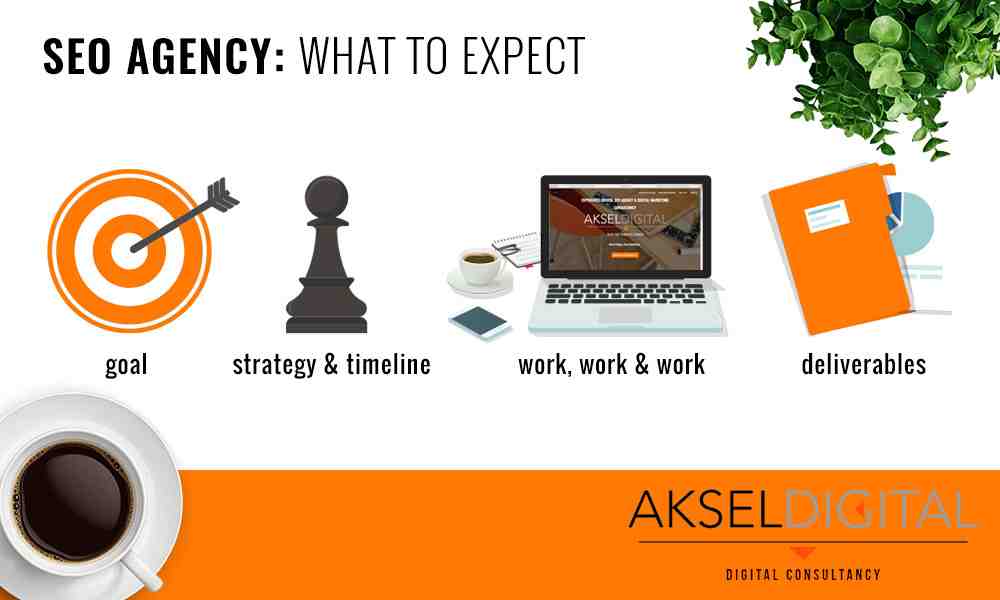
Whether it’s local SEO deliveries or enterprise-grade SEO services, any established and effective search marketing agency will provide the fundamentals expected as specialists in their field.
There will be other priorities that may be unique to business circumstances and areas of higher perceived value for your current requirements, and these may be added to the above core agency expectations where appropriate.
As a tip, one thing to avoid in your expectations is a small set of very specific, localized SEO keywords to focus on.
These will be the five or ten that you can look at on your mobile phone every week and curse the competitor who is located there.
While you may have some keywords that are more commercially important than others, don’t restrict your focus (and that of any agency you choose to work with) to only focus on a handful of terms.
Consider the end goal of these terms and what you want to achieve through local SEO success.
There may be thousands of highly effective and relevant search queries, plus many new and unique ones being discovered every day in your data.
You don’t want to lose sight of these and their potential value by having a narrow focus on just a few.
If it’s easier to steer clear of standalone keyword targets, consider the topic instead of the term. This can be much more useful for measuring local SEO gains.
Strong Technical Performance

Regardless of your local SEO goals and objectives, every local SEO campaign must take into account the health of the website, the user experience, and the overall technical ability to function.
Traditionally within local SEO this would focus on topics such as:
Add to the above a practical emphasis on:
You may also want to consider broader elements historically associated more with larger entities and brands.
This could include providing easy access to information through site architecture and digital simplification to enable the user to get to their endpoint as easily and effectively as possible (including the broader principles of rate optimization). of conversation).
Evidence-Driven Content
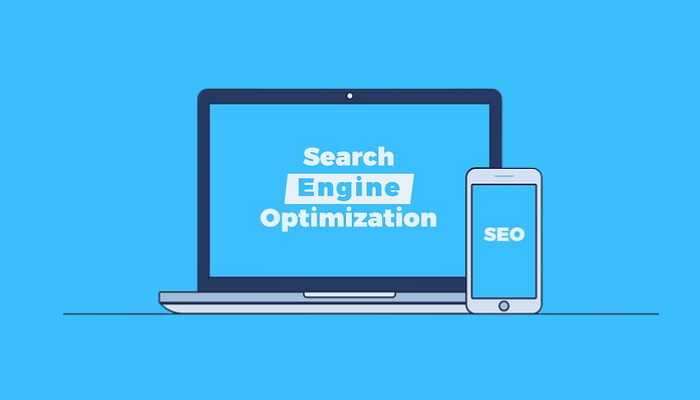
It is not enough to provide industry expert opinion and localized content on a website with the expectation of mastering local SEO.
Ideally, any competitive local SEO campaign should be fueled with data-driven (evidence-backed) content at levels of quality and volume much higher than what you can expect for local-targeted SEO campaigns.
Content creation can be done in-house or outsourced to a marketing agency. But regardless of the exit approach, combining data, local SEO experts, and leveraging their unique industry insights is paramount.
It is this combined approach that will provide competitive advantage and allow you to consistently create best-in-class content that has true standalone value both within the local niche and for broader branding and authority building.
From an agency, you should expect them to lead the local SEO content strategy and approach, providing ongoing recommendations using all available and relevant data sets to justify; priority, focus, purpose, and ongoing impact of the content being generated.
You would expect content to be created to leverage the value and metric success of the existing content you have on your website.
You would also expect a consistent focus on new opportunities to devise and implement new content that reflects new data sets and the changing needs of your core business audience.
As with any comprehensive SEO-driven content strategy, you’ll want to cover a range of user intent, focus on the actual value provided, and look at the full spectrum of the information search and purchase cycle.
While this would be biased towards local SEO, that doesn’t restrict the impact.
Relevant topic areas important to the business will likely have greater appeal and the opportunity to increase site trust, backlinks, and perceived relevance beyond local demographics.
Local Authority And Trust Building
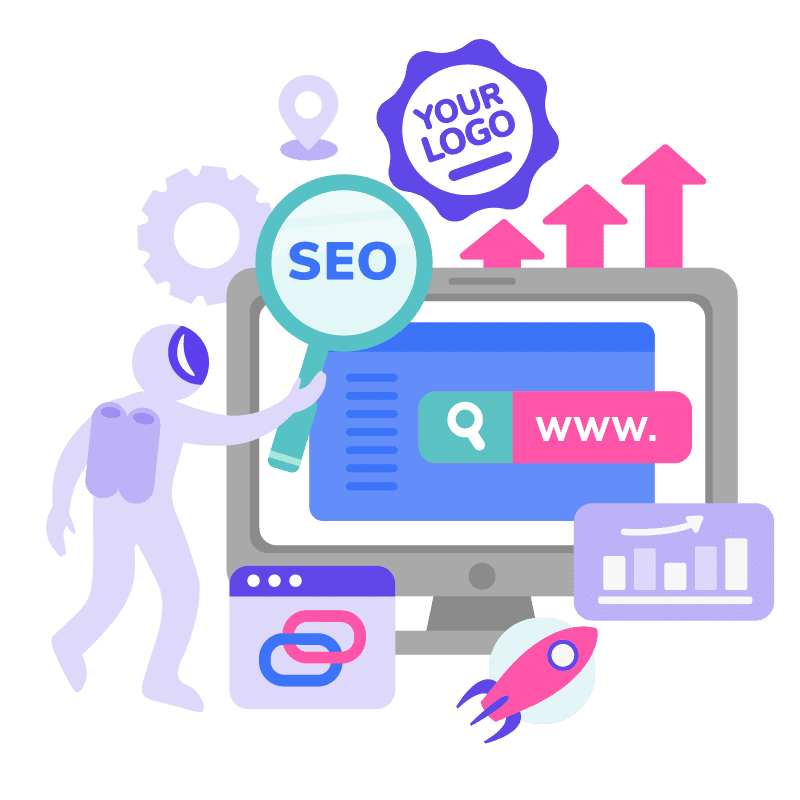
Building local authorities is a mainstay within local SEO and a must to gain ground within your niche online.
There are a number of consistent threads for this, including:
Outside of the citation and linking aspect of authority building, you get greater insights, authority, and broader trust signals.
This largely includes managing, optimizing, and continuing to grow reviews and engagement through Google Business Profiles (for each business location), formerly Google My Business.
This includes (but is not limited to) search and mapping optimization, profile completion, content promotion, and answering questions from your audience.
The more proactive you are in generating positive reviews as part of your combined business and agency approach (including location-specific reviews), the faster you’ll see gains in your perceived online authority and local SEO results.
This should be through Google Business Profiles, Bing Places, and other established and trusted third-party review sites.
Content And Social Media
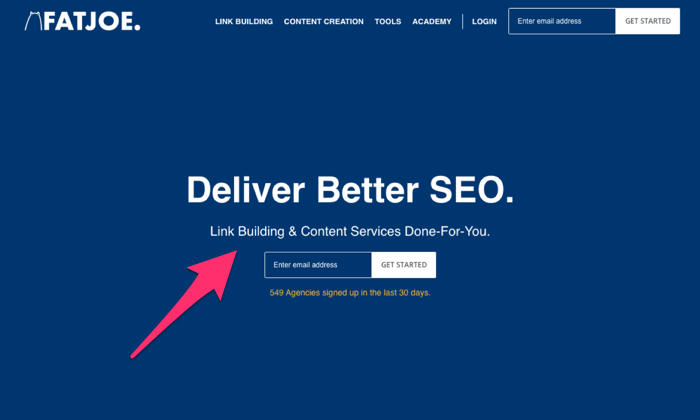
You need to see how you and your agency can enable your website and brand to truly integrate with the local community.
For some sites and brands, this may be many local communities, spanning several geographically dispersed regions, while for others, it may be a single location and several miles around it.
Either way, the ability to enhance your website’s community focus through audience-aware content hubs, free community resources and tools, and ideally local user-generated content, the better.
This will naturally tie in with social media interaction, engagement and promotion, as well as social listening and audience building, through a genuine understanding of their wants, needs and pain points.
And more importantly, how your people/experts/staff, brand and products/services can positively impact them.
In Summary
Businesses will have a set of custom requirements for their local SEO and expected results from an agency.
Some of these will be based on applied filters linked to previous experiences and often lessons learned.
However, there are a number of key standard expectations that you should always consider, as outlined above.
Featured Image: Vector_Bird/Shutterstock
A local SEO audit reveals your page’s condition in search engine rankings and ways you can further improve your site to increase conversions and revenue.
How do I improve my Google search ranking?
Google review count and review score factor in local search ranking. More positive reviews and ratings can improve your business’s local ranking. Your position in web results is also a factor, so search engine optimization (SEO) best practices apply.
What are 5 ways to improve your search engine ranking on Google? 5 Ways to Improve Your Search Engine Ranking on Google
- Make link building a priority. …
- Write skyscraper and SEO-friendly content. …
- Create a responsive website. …
- Maximize CTR in search results. …
- Use SEO friendly videos and images.
Why is my Google ranking so low?
A dramatic drop in Google ranking can be caused by many factors, including content changes, an algorithm update, technical issues, improvements made by competitors, SERP design changes, and a Google penalty. We’ve put together a handy checklist to quickly diagnose the problem and get your ranking back!
Why is my website so low on Google?
Well, the first and most harmless reason is that Google hasn’t had time to index your new page yet. If you just created your page, give it some time before looking for yourself in the results. This could be because you accidentally blocked Google from crawling your website.
Why am I not getting Google rankings?
Your website has been penalized by Google This can be anything from creating many spammy backlinks to your website, to using optimized anchor text or thin/duplicate content. Receiving a penalty will result in a loss of organic traffic and rankings, making your website difficult to find in search results.
How do I get #1 on Google?
You usually get to number 1 if you have a good reputation online. Well-known brands have good reputations. These brands also rank at the top of Google. Reputation increases with the number of quality web pages that link to any page on your site.
Can you pay Google to rank higher?
Tip: There is no way to request or pay for a better local ranking on Google. We do our best to keep the details of the search algorithm confidential, so that the ranking system is as fair as possible to everyone.
Can you pay to increase SEO?
Absolutely not. Businesses continue to make money because Google places them at the top of search results. What is dead is the old SEO techniques that were highly effective and could quickly promote your business up the Google ranking ladder, quickly, easily and cheaply.
How much does it cost to be at the top of a Google search?
FREE! It costs nothing. Google will put you on their website for free.
Can you pay Google to improve your SEO?
The simple answer is no. Paying for Google search ads may put you at the top of the page, but that doesn’t improve your organic search ranking. Google search rankings are determined by many factors, from website health and number of backlinks to geographic location.
What is local SEO and why do we need local SEO?
Local search is an integral part of any SEO strategy targeting customers in a specific region, city, or neighborhood. In a nutshell, local SEO is where you focus to improve your ranking and visibility in local search results, like Google’s Map Pack/Local Pack.
Why do we need local SEO? Local SEO helps your business stand out, even if you don’t have a website, and helps drive more traffic to your facility through online leads. Since these leads come from people who are specifically looking for products or services that your business offers, they are also likely to provide you with a high conversion rate.
What is local SEO vs SEO?
While traditional SEO focuses on improving your site’s visibility on a national or global scale, local SEO allows you to capture local search territory to connect with search engines in your area. SEO and local SEO use many of the same strategies.
Does local do SEO?
Local SEO (Search Engine Optimization) is the process of improving search engine visibility for local businesses, primarily those with physical locations. By following local SEO best practices, businesses can improve organic traffic from customer searches in nearby areas.
Is local SEO easier?
Local SEO is almost always less expensive than national SEO because there is less competition for local keywords and you will be targeting a smaller audience than if you were using a national keyword. In many ways, local SEO is easier to conceptualize, implement, and manage than national SEO.
Why local SEO is important for SEO?
Local SEO allows you to put important information about your site online, such as your business address and phone number. Additionally, you can highlight and promote the type of products or services you offer on your website using SEO techniques.
What is local SEO?
Local SEO is a search engine optimization (SEO) strategy that helps make your business more visible in local search results on Google. Any business that has a physical location or serves a geographic area can benefit from local SEO.
What is local SEO?
Local SEO is a search engine optimization (SEO) strategy that helps make your business more visible in local search results on Google. Any business that has a physical location or serves a geographic area can benefit from local SEO.
What is a local SEO page?
Local SEO is the practice of optimizing your website for a specific local area. If you have a local business, such as a store, restaurant, or agency, you want your web pages to rank for certain search queries made by a local audience. … You can do some of that on your own website, but there’s so much more you can do!
What do you mean by content strategy?
A content strategy is a plan where you use content (audio, visual, and/or written) to achieve your business goals. A successful content strategy will engage your target audience at every stage of the funnel and keep them engaged even after a purchase. Let’s say your business goals include increasing brand awareness.
What does content strategy mean? Content strategy focuses on the planning, creation, delivery, and governance of content. Content includes not only the words on the page, but also the images and media used.
What are the four components of content strategy?
An effective content marketing strategy must have four basic elements to be successful: brand positioning, owned media value proposition, business case, and strategic plan. Let’s see why these elements are essential for Content Marketing and how you can start implementing each of them.
What are the 3 components of content strategy?
Successful content marketing strategies consist of a combination of three types of content creation: Awareness content. Thought leadership content. Sales content.
What are the 3 components of content strategy?
Successful content marketing strategies consist of a combination of three types of content creation: Awareness content. Thought leadership content. Sales content.
What is content strategy and why do you need it?
A content strategy helps you define your marketing goals and set priorities. It allows you to plan your work and make sure that the entire marketing effort is goal-oriented. With a documented content strategy, you can ensure that every effort put forth by your team translates into tangible results.
Why you need a content strategist?
Stakeholders Because content strategists are responsible for creating a unified content experience, they must be able to engage stakeholders. They need to determine the needs of the overall organization and departments, work with other teams such as marketing, design, and product, and engage senior leaders.
What is content strategy and why is it important?
Content strategy is the development, planning, creation, delivery, and management of content. The purpose of content strategy is to create meaningful, cohesive, engaging, and sustainable content that appeals to the company’s target customers.
What is the purpose of a content marketing strategy?
Content marketing is a marketing strategy used to attract, engage, and retain an audience by creating and sharing articles, videos, podcasts, and other relevant media. This approach establishes the experience, promotes brand awareness, and keeps your business top of mind when it comes time to buy what you’re selling.
Is local SEO paid?
For a single project focused on analysis, research, cleaning, and optimization, the average price for a local SEO project would range from $300 to $1500 with the average price around $750.
How much does local SEO cost per month? In 2021, SEO cost for local campaigns averaged around $1,000 per month, while nationally focused SEO campaign costs ranged from $2,500 to $7,500 per month on average. The cost of SEO services varies depending on the complexity of the keywords and the services included.
Does SEO need to pay?
If you are hiring a high-end SEO company to run a local campaign, expect to pay $500.00 per month. A national or international campaign will require a minimum budget of $2,500 to $5,000 per month. Some companies offer a “trial package” at a lower price, with no contract.
Is SEO paid or free?
Many people are attracted to SEO because it is “free website traffic”. And yes, you don’t pay when someone clicks on your site in organic search results. But make no mistake: SEO is NOT free.
Does SEO cost money?
Technically, SEO is free. You are not paying money for SERP placement. Google ranks content based on a number of factors, including the E-A-T trio: experience, authority, and trust. They will rank high for those that are seen as valuable resources for users.
Is SEO a paid service?
For the monthly advance, clients will pay a monthly fee for selected SEO services. SEO costs for a monthly retention plan range from $750 to $5000 per month. The average, however, is $750 to $2,000 per month.
How can I do SEO without paying?
Is SEO a paid service?
For the monthly advance, clients will pay a monthly fee for selected SEO services. SEO costs for a monthly retention plan range from $750 to $5000 per month. The average, however, is $750 to $2,000 per month.
Does SEO cost money?
Technically, SEO is free. You are not paying money for SERP placement. Google ranks content based on a number of factors, including the E-A-T trio: experience, authority, and trust. They will rank high for those that are seen as valuable resources for users.
Is SEO the same as paid search?
Paid search targets those searching for keywords related to your business through ads on the search engine results page (SERP). SEO, on the other hand, ensures that your website, content, and social profiles rank well in organic search results.
Is SEO paid or free?
Many people are attracted to SEO because it is “free website traffic”. And yes, you don’t pay when someone clicks on your site in organic search results. But make no mistake: SEO is NOT free.
Does Google charge for SEO?
There is no cost to appear in organic search results like Google does, and making changes to improve your website’s SEO can have a big impact on your search rankings over time. Learn more about how Google organic search works and find tips to get started here.
How much does Google charge for SEO?
| PRICE MODEL | SEO COST |
|---|---|
| Monthly | $750 – $5000 / month |
| Fixed price | $1,500 – $25,000 / contract |
| Project-based or one-time | $5,000 – $30,000 / project |
| Hourly | $80 – $200 / hour |
Can you pay Google for SEO?
No. Google does not offer SEO services. Remember, Google is a search engine and has created its own algorithm to rank websites.
Is SEO free or paid?
Many people are attracted to SEO because it is “free website traffic”. And yes, you don’t pay when someone clicks on your site in organic search results. But make no mistake: SEO is NOT free.
Is SEO free?
Ahrefs SEO Toolbar is a free Chrome and Firefox extension that allows you to check for broken links, track redirect chains, and highlight nofollow links for any web page. It also generates an on-page SEO report that includes the title of the web page. Meta description.
